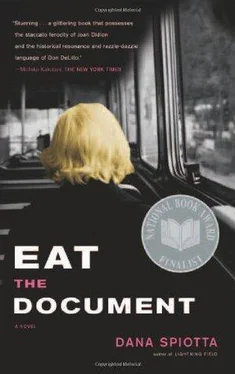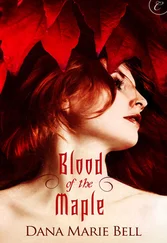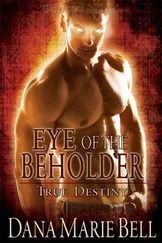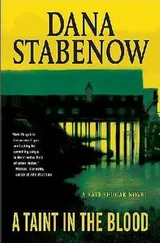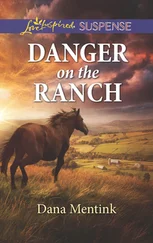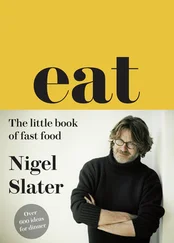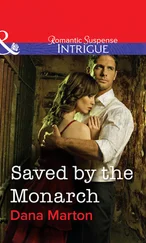Dana Spiotta - Eat the Document
Здесь есть возможность читать онлайн «Dana Spiotta - Eat the Document» весь текст электронной книги совершенно бесплатно (целиком полную версию без сокращений). В некоторых случаях можно слушать аудио, скачать через торрент в формате fb2 и присутствует краткое содержание. Год выпуска: 2006, Издательство: Scribner, Жанр: Современная проза, на английском языке. Описание произведения, (предисловие) а так же отзывы посетителей доступны на портале библиотеки ЛибКат.
- Название:Eat the Document
- Автор:
- Издательство:Scribner
- Жанр:
- Год:2006
- ISBN:нет данных
- Рейтинг книги:3 / 5. Голосов: 1
-
Избранное:Добавить в избранное
- Отзывы:
-
Ваша оценка:
- 60
- 1
- 2
- 3
- 4
- 5
Eat the Document: краткое содержание, описание и аннотация
Предлагаем к чтению аннотацию, описание, краткое содержание или предисловие (зависит от того, что написал сам автор книги «Eat the Document»). Если вы не нашли необходимую информацию о книге — напишите в комментариях, мы постараемся отыскать её.
shifts between the underground movement of the 1970s and the echoes and consequences of that movement in the 1990s. A National Book Award finalist,
is a riveting portrait of two eras and one of the most provocative and compelling novels of recent years.
Eat the Document — читать онлайн бесплатно полную книгу (весь текст) целиком
Ниже представлен текст книги, разбитый по страницам. Система сохранения места последней прочитанной страницы, позволяет с удобством читать онлайн бесплатно книгу «Eat the Document», без необходимости каждый раз заново искать на чём Вы остановились. Поставьте закладку, и сможете в любой момент перейти на страницу, на которой закончили чтение.
Интервал:
Закладка:
Henry stepped into the room, barely glanced at the plastic pieces, the stereo or the books, and sat on the couch. He took out a pipe and a lighter and began to smoke.
“It has been ages for me. I never smoke anymore.”
“How come?” Henry said.
Nash put his hand on his chin and frowned, glancing at the floor and then back to Henry. “I don’t know. It was an expensive habit. I have a no-frills existence, a modest life,” he said. He took the pipe from Henry and inhaled while he held the flame to the bowl. Nash didn’t smoke anymore because at some point it began to have an unpredictable effect on him; sometimes it made him uncomfortable in deep, existential ways, making even the feel of his breath suspect, as if he were inhabiting a strange, wrong body.
So Nash didn’t mind that smoking after all this time wasn’t making him feel high in the slightest. But the gesture of smoking, particularly with Henry, was relaxing. “How modest a life? How no frills?” Henry said, sucking in air, holding it and then gulping in more. Nash couldn’t help noticing how bad Henry looked away from the low bar light, the ragged edges beneath the surface, the deep creases on his face and the yellowness of his skin. Nash shrugged.
“Pretty fucking modest. Humble, plain. In every way imaginable.”
“Health insurance?”
Nash shook his head.
“Stocks? Mutual funds?”
“No. God no.”
“Real estate?”
“I said really modest.”
“A savings account? A bank account?” Henry asked, hard-grinning at someone unseen and shaking his head.
“I use money orders and cash. There is not much left over. What there is, I stash.” Nash took the smoking pipe from Henry’s outstretched hand, leaving a faint smoke trail of herbal sweetness. He put his lips to it and inhaled. He began to feel the diffusion of the pot easing his muscles. Good, that was what he had hoped for — a nice physical high.
Henry watched him for a minute and then started laughing and rasping. It seemed unlikely that he would be able to stop for a while.
“You stash your dough? Like under your mattress?” he said between guffaws.
“I’m not going to tell you, asshole. I’m not stupid.” Nash started laughing too.
“Ex-wife?” Breath. “Kids?”
“No. No! Look, I buy thrift store clothes. All right? I never eat out — I cook everything myself. Is that all? Oh yeah, I don’t have a telephone, man. Did you hear me? I get mail, so why do I need a telephone?”
Henry stopped laughing finally and just smiled. “That’s amazing. You are off the grid. Right here in the city.”
“Sort of, I guess. But I have electricity and refrigeration. I’m quite content with that.”
“Off the fucking grid.”
“No cabin in Montana.”
“No goddamned phone.”
“But you know, I wouldn’t mind being one of those guys in Arizona or New Mexico who have spent twenty years building some massive landwork in the desert. Some earth-altering sculptural dream of the future and God, until you die one day in a tractor moving the never-ending piles of dirt, unfinished but still — up until your last breath you are implacable, relentless and alone. Alone except perhaps for the young acolyte wife, desert tan, a woman with braids and devotion, her never-ceasing and only ambition being to help you — a man thirty years her senior — realize your dream. Your lifelong project, monument, statement. Your unyielding testament to, uh…well, unyielding.”
“Sounds great,” Henry said. He offered the pipe again. Nash shook his head and leaned back on the couch. There was a second of silence, and then Henry barked out a huge laugh.
Nash nodded. “It sure does, doesn’t it?” They laughed until silence gradually set in. Nash then got up from the couch and sat cross-legged on the rug.
“Are you married?” Nash asked.
Henry sighed. “I’m divorced. I got a kid, too. I have two houses and I own a few buildings.”
“No shit? Really?”
“How do you think I can afford to be at the bar all the time? I’m a man of leisure.”
“You don’t seem like someone who doesn’t work.”
“Good.”
They sat for what felt like a long time. Nash studied his rug. Then his ceiling light fixture.
“That’s beautiful. Braids in the desert. A tractor,” Henry finally said.
“Yeah.”
“You know what you are? You’re a fucking priest, man.”
“No, I’m not. I just slightly exist. Lots of people in the world live like that, they’re just more ashamed and less deliberate about it.”
“Maybe, maybe not.”
Henry agreed to fund Prairie Fire. Mostly, Nash guessed, because Henry wanted to do something for him. They took over the basement space of one of his buildings; Nash left his bartending job. Once the store opened, Henry became more interested in it. He would spend hours looking at the books, not exactly reading them but pulling them from the shelves, studying the back covers, looking at the tables of contents, fanning the pages with his fingers. He even sat in on some of the meetings, although he never said anything.
One of Nash’s ideas to help the place make extra money and keep traffic up had been to stay open late for various local meetings. He modeled his idea on European “infoshops.” They put in two long wood tables with benches in a recessed area at the back of the store. He hired a middle-teen high schooler, Roland, to sell coffeehouse beverages from a station in the corner. It was through these drinks that the meetings brought in some money. But most important, the meetings made Prairie Fire into a fairly interesting place: a sanctuary of subversion for misfits and scragglers. And even occasionally those kids referred to by the other kids as the marginalites . (Nash guessed they were either the elite among the marginals or considered only lightly marginal. Probably both.) They read books or magazines, met people or just watched, wrote, ate, and even organized various protest events.
Nash enjoyed sitting among them at the long table, working but also drinking a soda, listening and occasionally talking. It all fit into a subject dear to his heart, and which he called by various names: His Antiology, or study of all things anti. His Counter-Catalog. Compendium of Dissidence. Ana-encyclopedia. The Resist List. His Contradictionary. He liked to think he observed them with a nearly clinical objectivity: the scrappy outsider kids who either stood in the park and discussed various actions and take-it-to-the-street strategies or sat all day in the coffee shop inventing manifestos and declaring their opposition — often to a seemingly arbitrary object, as much, perhaps, for opposition’s own sake and energy as for a desire for social change. Nash thought that was okay, in fact he loved that specifically adolescent perversity: the brief window when the monolith of the culture had not yet made a convincing claim on their souls and they were able to muster some resistance to it all.
Nash heard them explain how they would get this media or that media to notice. In these kids’ mouths the media was not a force they feared or admired but simply a tool they understood. They were more connected and savvy, and also more smug, than any activists he recalled. Except they would never use that word, activist . They were protesters but not that either. They could call themselves resisters, but that sounded so reactive, almost puritanical. Instead they called themselves testers, and they organized not demonstrations or protests but tests . He kind of liked that, testers. What was being tested — the kids or the target? Okay, not bad.
But plenty of other things about the testers did not impress Nash. When he felt particularly uncharitable, he found them entitled in this very dumb and tedious way. Oddly enough, for all their sarcasm and easy, shallow irony, there was still not enough self-reference for him, not enough wit. There was self-obsession, yes, self-consciousness, sure (after all, they always lived as though their lives were all on the verge of broadcast), but no concern with self-implication. Just that ungenerous righteousness, as if merely being young was somehow to your credit.
Читать дальшеИнтервал:
Закладка:
Похожие книги на «Eat the Document»
Представляем Вашему вниманию похожие книги на «Eat the Document» списком для выбора. Мы отобрали схожую по названию и смыслу литературу в надежде предоставить читателям больше вариантов отыскать новые, интересные, ещё непрочитанные произведения.
Обсуждение, отзывы о книге «Eat the Document» и просто собственные мнения читателей. Оставьте ваши комментарии, напишите, что Вы думаете о произведении, его смысле или главных героях. Укажите что конкретно понравилось, а что нет, и почему Вы так считаете.
